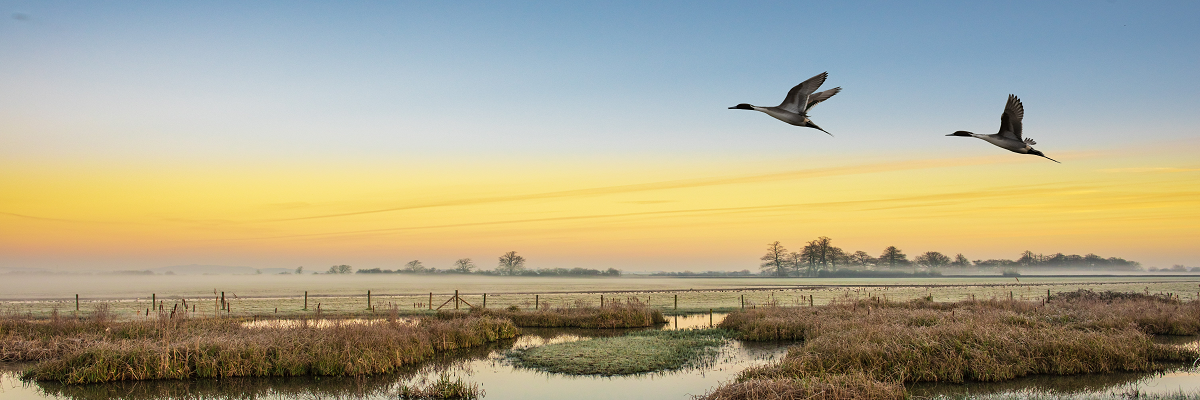Land Business Update | Week Commencing 2 September 2024
Farming
Do agri-environment schemes actually deliver environmental benefits? (England)
The effectiveness of agri-environment schemes (AES) is monitored by Natural England on behalf of Defra. To do this, Natural England gathers evidence and carries out research on the AES each year. The key points from this year’s evidence annual report, which summarised seven research projects, are:
- AES can support wildlife and increase their populations, and that the positive effects can be measured beyond the field scale at a landscape scale.
- The most positive effects for biodiversity are likely to happen in (i) landscapes that have a range of habitats and (ii) where farms in that landscape have a good variety and area of AES options.
- 80% of land managers considered their membership of a Countryside Stewardship Facilitation Fund group to be useful or very useful to them, mainly citing access to advice and support as the main reasons.
- 92% of land managers who had had permissive access in their AES wanted it to be added back into AES (as it ceased to be a new option in 2010) or to continue with the permissive access they already offer.
- Very few geological SSSIs use the Countryside Stewardship scheme to fund works to protect their geological features, so land managers should be made aware of the CS options.
The report also included the results of research on national-scale land-use scenarios. The study created nine land use scenarios to explore alternative UK land uses. In all of them, there was a strong trade-off between food production and climate change mitigation and habitat provision. The research authors say that, to balance these trade-offs, a strategic approach is needed. Such an approach would include ‘ambitious combinations’ of measures including reducing food waste, using arable land to grow crops for direct human consumption rather than livestock feed (and thus implying a dietary change), and increased productivity on remaining farmland. If done, it is possible to fully mitigate expected reductions in food production. S&P comment: this research is another piece of evidence that supports multi-functional land use and also reinforces the need for a land use strategy to help balance the trade-offs. If you have any questions about AES, please contact Jonty Armitage.
Environmental Land Management schemes budget to be cut by £100m
The Guardian has reported that the cut is due to an underspend of £100m a year from the £2.4bn budget. Environmental organisations have responded by saying that it is a mistake and that the budget actually needs to increase to reverse the decline in wildlife and the environment. It is unclear whether the budget will be increased in following years if the (reduced) budget is fully spent.
Energy
Record amount of solar energy generated this summer
Generation is up a quarter on last year’s level to 5.8 terrawatts and 16% above the record generation in 2022, according to analysis done for The Guardian. This is despite the poor weather at the start of the summer as solar panels generate power on cloudy days (and can be less efficient when they get too hot). The government has promised to triple the UK’s solar power capacity by 2030, while doubling its onshore wind and quadrupling its offshore wind capacity.
Last coal fired power station to stop generation in October
The UK is set to be the first G7 country to stop using coal to generate electricity when the Ratcliffe power station in Nottinghamshire closes in October. The proportion of the UK’s electricity generated from coal has fallen from 80% in 1990 to 1% in 2023.The amount from renewables is projected to increase from @ 130 TWh (45%) in 2023 to @ 388 TWh (90%) by 2030.
Environment and natural capital
Floods and Droughts Research Infrastructure network
This network of organisations is aiming to identify where extreme weather incidents are likely to occur and to try to reduce their impact. It is led by the Natural Environment Research Council (NERC) and UK Centre for Ecology & Hydrology (UKCEH), and has £40m of government funding. The project has been developed since 2020 and is now moving into its implementation stage.
Britain’s first ever wildfire tsar to be appointed
The new National Resilience Wildfire Adviser will assess what is needed to increase resilience to wildfire risk and help improve co-ordination to prevent and manage them. The Fire Brigades Union says that new equipment is needed to deal with wildfires and other environmental challenges, but that funding and staff have been cut in recent years, with @ 20% of fire fighter jobs cut since 2010.
National Hedgehog Monitoring Programme
Hedgehog numbers have decreased by up to 75% in rural areas since 2000. This is a great shame for the hedgehogs themselves but is also an indication of the wider state of our countryside as they are an indicator species. The National Hedgehog Monitoring Programme, which was launched this year, seeks to establish robust hedgehog population estimates using a world-first combination of trail cameras, artificial intelligence (AI) and help from volunteers. If you would like to get involved by validating camera trap data, which can be done from your home, you can do so by signing up for a MammalWeb account and selecting the NHMP project to classify.
Property and rural economy
Agricultural Holdings Act succession rules changed in England from 1 September
Tenants still need to satisfy two sets of tests to be considered for succession to an AHA tenancy – eligibility tests and suitability tests. The eligibility tests are unchanged apart from the commercial unit test being removed. The suitability test is changed to a new and more demanding one, which asks whether the landlord would consider the applicant a candidate they would be willing to grant the tenancy to. This includes considering their capability and capacity to farm the holding commercially, and their experience, training and skills in agriculture and business management. The changes aim to improve agricultural productivity and ensure that the best applicants are eligible. If you have any queries about the changes, please contact Matthew Scott.






